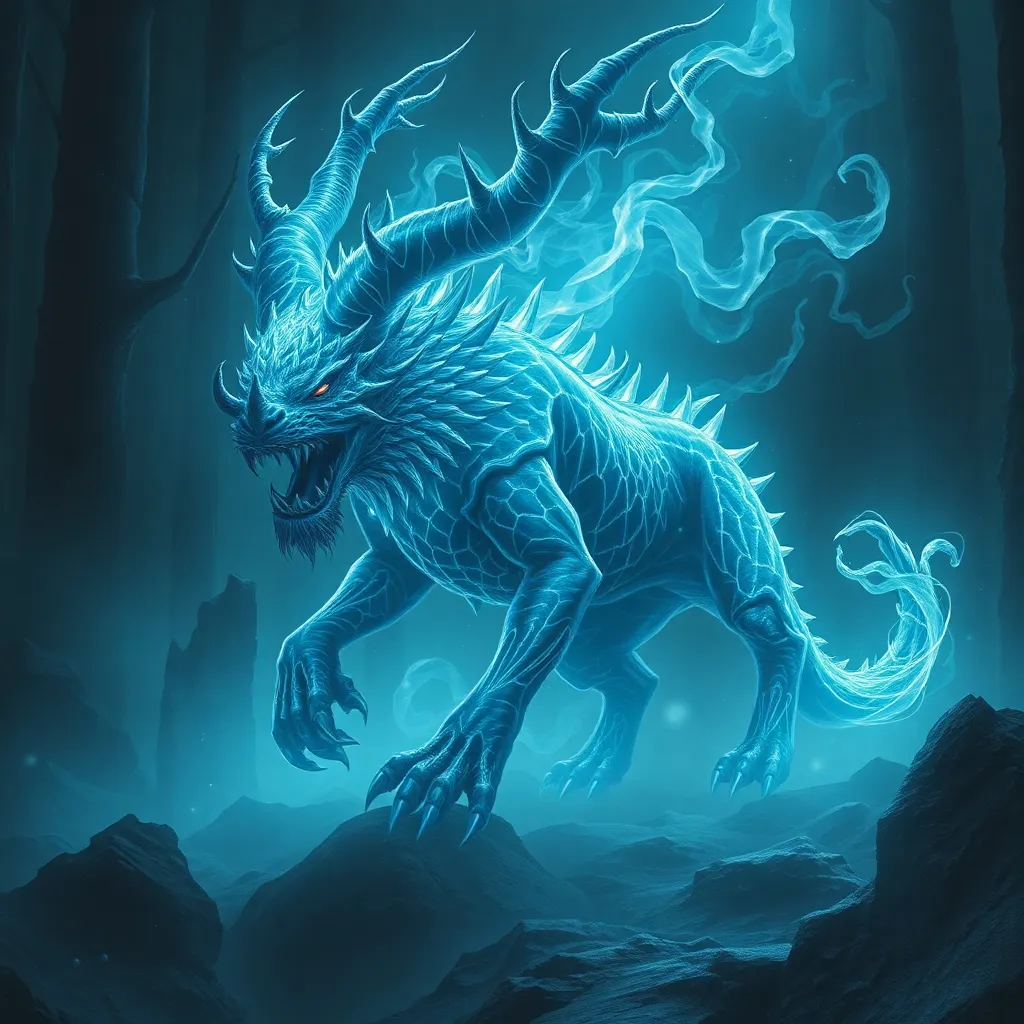The Tengu’s Power: Exploring Their Supernatural Abilities and Their Use of Magic
I. Introduction to Tengu Mythology
Tengu are fascinating creatures deeply embedded in Japanese folklore, often depicted as part bird and part human. They are considered supernatural beings that embody the spirit of the mountains and forests. Historically, Tengu have shifted in perception from malevolent spirits to protective figures, reflecting the evolving nature of folklore.
The narratives surrounding Tengu have evolved over centuries, with their origins tracing back to the late Heian period (794-1185). Initially associated with Buddhism, they were seen as disruptive entities that hindered monks and travelers. However, as time went on, their image transformed, and they became revered as protectors of nature and wisdom.
II. Physical Characteristics of Tengu
Tengu are traditionally depicted in various forms, with two main types: the Karasu Tengu and the Hōrin Tengu. The Karasu Tengu resembles a crow, with a beak and black feathers, while the Hōrin Tengu has a more human-like appearance, often depicted with long noses and red faces.
- Karasu Tengu: Bird-like features, known for their cunning and mischievous nature.
- Hōrin Tengu: More humanoid, often portrayed as wise and skilled in martial arts.
The symbolism behind their appearance is significant. The long nose of the Hōrin Tengu, for instance, symbolizes wisdom and knowledge, while their bird-like traits highlight their connection to the spiritual realm and the power of flight.
III. Supernatural Abilities of Tengu
The Tengu are renowned for their remarkable supernatural abilities. Among the most notable are their shape-shifting and transformation powers, allowing them to alter their appearance at will. This ability is often utilized to deceive or teach humans valuable lessons.
In addition to shape-shifting, Tengu possess enhanced physical abilities:
- Flight: Tengu are often depicted soaring through the skies, moving with incredible speed.
- Strength: They are said to possess immense strength, able to overcome formidable opponents.
- Agility: Tengu exhibit remarkable agility, allowing them to navigate through mountainous terrains effortlessly.
IV. Tengu’s Mastery of Magic
Tengu are also celebrated for their mastery of various forms of magic. They are often associated with:
- Illusions: Tengu can create illusions that confuse and mislead travelers.
- Nature Magic: They have the ability to influence nature, commanding the elements to protect their domains.
- Healing: Some legends speak of Tengu using their magic to heal the sick or injured.
The role of nature and spirituality is central to Tengu’s magical practices. They are seen as mediators between the physical world and the spirit realm, often using their powers to maintain the balance of nature.
V. Tengu as Guardians and Protectors
In Japanese folklore, Tengu are often regarded as guardians of the mountains and forests. They are believed to protect these sacred spaces from those who would do them harm.
Their interactions with humans can vary significantly:
- Benevolent Encounters: Some stories depict Tengu as wise teachers who guide lost travelers or impart knowledge about martial arts.
- Malevolent Encounters: Conversely, Tengu can also be mischievous or vengeful, playing tricks on those who disrespect nature or wander into their territory.
VI. Tengu in Popular Culture
In modern times, Tengu have made their mark in popular culture, appearing in various forms of media such as literature, anime, and video games. They are often depicted with a blend of traditional and contemporary traits.
- Literature: Tengu appear in various works, ranging from classical tales to modern novels, often symbolizing the struggle between humanity and nature.
- Anime: Tengu are frequently portrayed as powerful characters with supernatural abilities, embodying themes of wisdom and strength.
- Video Games: Many games feature Tengu as characters or enemies, utilizing their abilities in creative ways.
These modern interpretations often reflect the ongoing fascination with Tengu, adapting their lore to fit contemporary narratives.
VII. The Cultural Significance of Tengu Magic
Tengu hold a significant place in religious practices and rituals within Japanese culture. They are often invoked for protection and guidance, with shrines dedicated to them found in various regions.
The impact of Tengu mythology extends to the arts, influencing traditional and contemporary works:
- Visual Arts: Tengu are commonly depicted in paintings and sculptures, symbolizing nature and spirituality.
- Performing Arts: Tengu themes appear in Noh and Kabuki theater, showcasing their complex characterizations.
VIII. Conclusion
In summary, Tengu possess a rich tapestry of supernatural abilities and significant cultural importance. Their powers, from shape-shifting to mastery of magic, highlight their role as both guardians and tricksters within Japanese folklore. As symbols of the balance between humanity and nature, Tengu continue to captivate the imagination, ensuring their legacy endures in contemporary society.
The enduring fascination with Tengu not only reflects the complexities of Japanese mythology but also underscores their relevance in modern cultural narratives, making them timeless figures in the collective consciousness.



